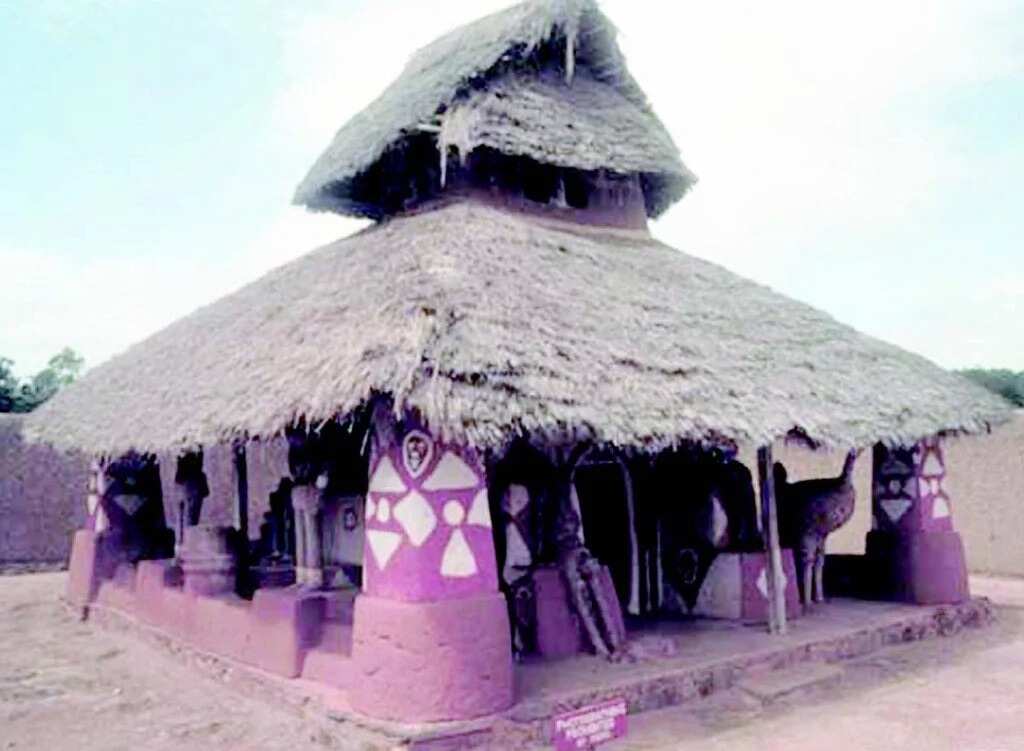Editor’s note: Every culture has specific values, mores and norms. But Obule Ocheyenor, Legit.ng’s contributor, believes that some of these traditional activities are due to be discarded. In this opinion piece, he examines the Osu caste system among the Igbo communities in Nigeria.

I watched with sadness recently when discussants on a TV programme narrated the negative impact of the “Osu caste” system among the Igbos from the eastern Nigeria. The two guests on the show agreed that the system was an outmoded tradition that must be discarded as it had done more harm to the peaceful co-existence of Igbos.
One of them spoke about a marriage that was to take place but had to be cancelled because the bride turned out to be an Osu, an Igbo term for an outcast.
The historical background of Osu and the status quo
According to a journal, ‘The Osu Caste Discrimination in Igboland: Impact on Igbo Culture and Civilization in Nigeria’, the system in Nigeria and southern Cameroon can be traced back to an indigenous religious belief system practiced within the Igbo nation.
It is the belief of many Igbo traditionalists that the Osu are people historically owned by deities and are therefore considered to be a 'living sacrifice', an outcast, untouchable and sub-human (similar to the Roman practice of homo sacer). This system received literary attention when it became a key plot point in the novel ‘No Longer At Ease’ authored by Chinua Achebe.
In this 21st century, this form of discrimination is still very much alive among Igbo speaking people in states such as Enugu, Anambra, Imo, Abia, Ebonyi, Edo and Delta in Nigeria. It is believed that modern-day Osu in Igboland are descendants of individuals who volunteered and were sacrificed to the various gods.
[article_adwert]
These forefathers pledged themselves and their descendants to these gods. They enjoyed protection and privileges but were segregated from ordinary folks. These Osu people married, fraternized and socialized among themselves.
It is a practice that has a far reaching impact on the marriage institution than any other consideration as it is still a taboo just like in the days of old, for an ordinary Igbo person to marry an Osu person.
The declaration of fundamental human rights
The Osu caste system negates the Universal Declaration on Human Rights (UDHR) adopted by the UN General Assembly in 1948. It is one of the most important instruments of economic, social and cultural rights. It guarantees right to life and lots of other human rights and frowns at discrimination in whatever guise.
The Convention on the Elimination of All Forms of Racial Discrimination prohibits discrimination on the basis of racial or ethnic origin in relation to a number of economic, social and cultural rights.
In the light of this, the 1999 Constitution of the Federal Republic of Nigeria seriously frowns at any form of discrimination against fellow man. All forms of human rights are guaranteed in the Constitution. Specifically, chapter IV of the Constitution deals with fundamental rights of the citizens.
For instance, section 34 (1) provides that "Every individual is entitled to respect for the dignity of his person,” and accordingly, paragraph (a) specifies that “no person shall be subject to torture or to inhuman or degrading treatment."
Victims of the Osu caste system belong to this category of people that the constitution does not allow to be treated that way. They have every right to be accorded human dignity rather than be degraded and treated as outcasts because of the accident of birth and ancient traditional beliefs. The veracity of the issue is that these people did not choose to be born as Osu.
Should another Mary Slessor come to the rescue?
Segregation or discrimination is not part of God's agenda when he created man. The traditions of men have allowed it to thrive from generation to generation. Will the Igbos need another Mary Slessor to deal a fatal blow on the abhorrent Osu caste system?
It was Mary Mitchell Slessor, a Scottish missionary to Nigeria that abolished the barbaric killing of twins among the Efik ethnic group in southern Nigeria. According to Wikipedia, her work and strong personality allowed her to be trusted and accepted by the locals while spreading Christianity, protecting native children and promoting women's rights.
If certain traditions whereby human sacrifices were made when a king dies have been abolished in some parts of the country, why is the Igbo community still holding tenaciously to the dehumanising Osu caste system that seeks to hold down some people in the society perpetually?
Admonition for the Igbos
Victims of the Osu caste system could lose their sense of worth due to the segregation and discrimination against them. For the women who could not marry on the basis of this discrimination, they could resort to prostitution with the attendant negative consequences on the society. The Igbos are so enlightened to allow this backward and negative tradition to thrive in their communities in this 21st century.
Segregation or discrimination of this kind breeds social disharmony and undermines cohesiveness in Igbo land. It is about time the governors of the states in Igbo land, monarchs, opinion leaders, civil society groups, youths and all stakeholders rose in one accord to put an end to this scourge of mankind.
The views expressed in this article are author’s own and do not necessarily represent the editorial policy of Legit.ng.
Your own opinion articles are welcome at info@naij.com — drop an email telling us what you want to write about and why. More details in Legit.ng’s step-by-step guide for guest contributors.
We’re ready to trade your news for our money: submit news and photo reports from your area using our Citizen Journalism App.
Contact us if you have any feedback, suggestions, complaints or compliments. We are also available on Facebook and Twitter. Subscribe to Legit.ng Opinion page!
Source: Legit.ng
ncG1vNJzZmivp6x7rbHGoqtnppdkgnZ%2BlG5qZqejqnqkrdKtnGarqajBprmMop6bp12pv6KwyK2gqKZdrrK1ecOiqpyZopmypXrHraSl